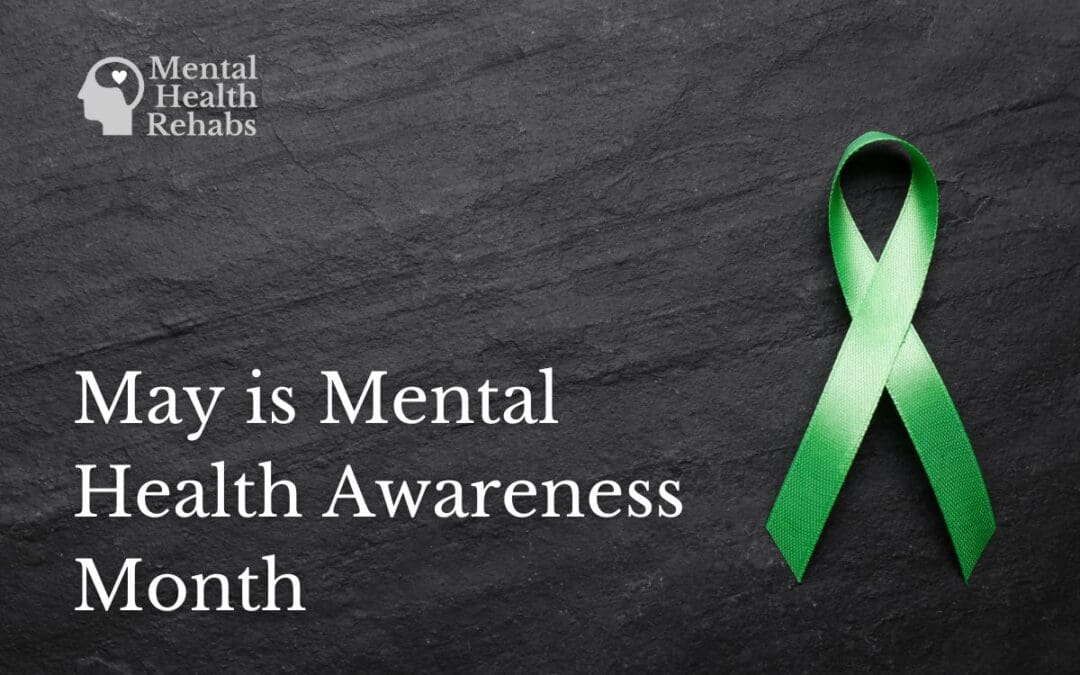As we step into Mental Health Awareness Month 2024, we recognize the pivotal role mental health plays in our lives amidst the fast-paced, often unpredictable lives we navigate. This month, we embark on a journey to explore the depths of our mental landscape, offering guidance, support, and resources to illuminate paths toward well-being and fulfillment. Join us as we delve into the importance of mental health in today’s world, uncover practical strategies for mental well-being, and learn to recognize when and how to seek help.
Mental Health in Today’s World
Statistics from 2022 reveal that the demand for mental health services remains high, with 79% of psychologists reporting increases in anxiety disorders, 66% in depressive disorders, and 64% in trauma-related and stressor-related disorders.
In today’s context, where productivity is often related to success, the pressure to perform continually can be overwhelming. This relentless pursuit of achievement has led to a noticeable increase in workplace stress, exemplified by a 2023 survey finding that 22% of employees in the United States experience high or very high levels of burnout.
As we navigate our personal and professional lives, the significance of mental health becomes increasingly evident.
How to Prioritize Mental Well-being
Between daily stresses, responsibilities, and endless to-do lists, prioritizing mental well-being can seem less important. Yet, it is precisely in these moments that taking care of our mental health becomes most crucial.
Here are practical steps you can take to prioritize your mental well-being:
- Set Clear Boundaries: Boundaries are critical for preventing burnout and ensuring you have space to recharge. Think turning off work emails after a particular hour, saying no to additional responsibilities when you’re already stretched thin, or ensuring you have quiet time each day.
- Practice Mindfulness: Mindfulness brings your attention to the present, helping to clear the noise and reduce stress. Techniques can include meditation, deep-breathing exercises, or simply taking a moment to notice your surroundings without judgment.
- Engage in Regular Physical Activity: Exercise releases endorphins, the body’s natural mood elevators, and can act as a form of meditation in motion, helping you to find a quiet moment in physical activity. Whether it’s a brisk walk, yoga, or a more vigorous workout, find a form of exercise you enjoy and make it a part of your routine.
- Routine Mental Health Check-ins: Just as you might have a routine medical check-up, regular mental health check-ins are vital. Reflect on your emotional well-being, journaling or speaking with a mental health professional.
- Cultivate Self-care Practices: Self-care is any activity that we do deliberately to take care of our mental, emotional, and physical health. It can be as simple as ensuring enough sleep, eating well, connecting with loved ones, or engaging in hobbies that bring you joy.
Recognizing the Need for Help
Acknowledging when you or someone you care about may need help is a significant step toward recovery and well-being. Early recognition of mental illness can lead to prompt intervention, which significantly improves outcomes.
Here are five key signs that suggest a need for professional evaluation or intervention:
- Persistent Sadness or Irritability: Persistent feelings of sadness, emptiness, or irritability that last two weeks or more could be signs of depression or another mental health condition.
- Extreme Changes in Mood: Significant, rapid swings in mood, such as from extreme highs (mania) to extreme lows (depression), that affect an individual’s day-to-day functions.
- Withdrawal from Social Activities: A noticeable retreat from social interactions, activities, or hobbies one usually enjoys due to distress or overwhelm.
- Changes in Sleep or Appetite: Significant changes in sleep patterns—sleeping too much or too little—or changes in appetite, whether a significant increase or decrease, can signal a mental health concern.
- Thoughts of Self-harm or Suicide: Thoughts of harming oneself or suicidal thoughts indicate severe depression or other mental health conditions that require urgent professional intervention.
The Role of Mental Health Awareness
Mental Health Awareness offers a multifaceted approach to improving individual and collective well-being and making a profound impact in diverse ways by:
- Empowering Individuals: Understanding mental health issues is critical to building a society that supports and empowers individuals to seek help. This will encourage empathy, reduce stigma, and motivate those needing support.
- Fostering a Supportive Culture: Awareness promotes a culture of understanding and acceptance. It confronts myths and misconceptions, presenting mental health conditions as common and treatable, and uses stories of recovery to shift the narrative toward hope and fulfillment.
- Advocating for Systemic Change: The importance of awareness transcends individual support, advocating for systemic changes to make mental health care accessible and affordable. It underscores the integration of mental health into all healthcare facets and calls for policy changes that enhance care access and support research.
- Encouraging Community Support: Mental health awareness galvanizes community action, inspiring individuals, organizations, and communities to unite to support mental well-being. Fundraising, volunteering, and awareness campaigns build a support network, offering resources and a sense of belonging to those affected, reinforcing the message that no one is alone.
Your Journey Toward Mental Well-being
May is Mental Health Awareness Month and it serves as a reminder of our resilience and the support around us.
Finding mental health resources and support in your area can be the first step toward recovery and well-being. Online tools, hotlines, and community networks offer a starting point for seeking help and connecting with professionals who can guide you through the complexities of mental health care.
Encourage yourself to reflect on your mental health regularly. Recognize the signs that might suggest you need support, and don’t hesitate to ask for help. Seeking assistance is a sign of strength, and it’s important to remember that you are not alone in this journey. Countless resources are available, designed to provide the support and care you need.

